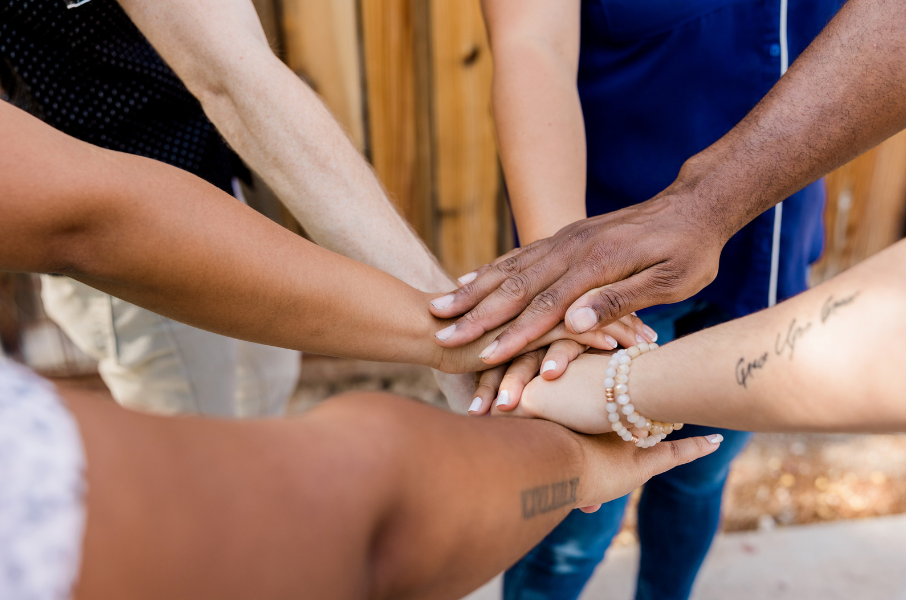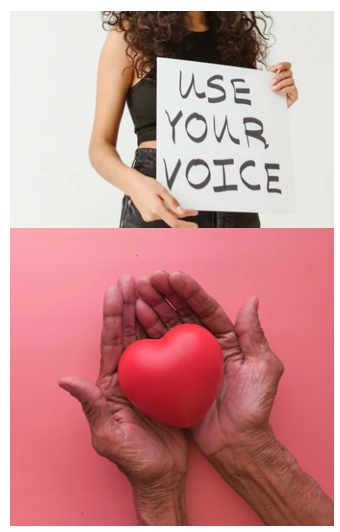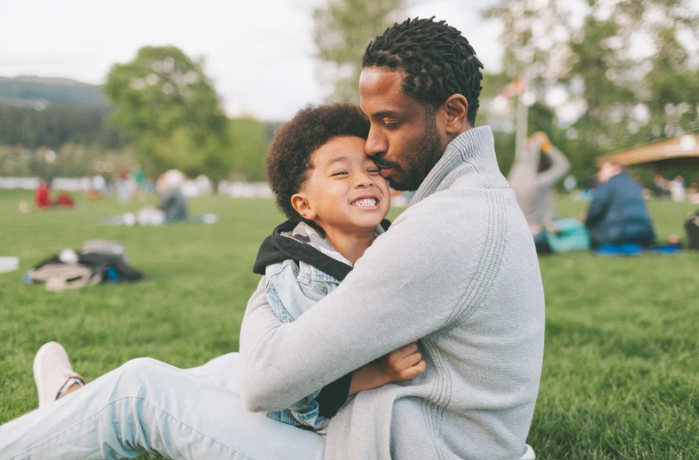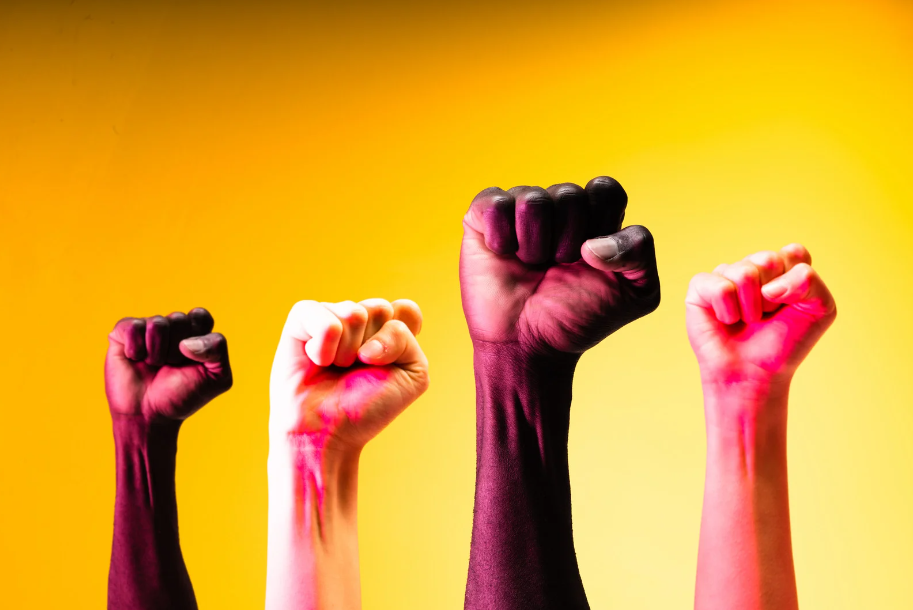Overcoming Barriers Is In Your DNA

Overcoming Barriers Is In Your DNA:
An exploration into the challenges and opportunities that Black, Indigenous, and People of Color (BIPOC) face; and how through empowerment, we can recognize that overcoming is already in our DNA
By: Veronica O’Brien, MS, LPC
My Story
Twenty years ago this year, I decided to immigrate to New Jersey from St. Lucia. It was not my first time traveling outside my Country of birth, but it was my first time in America. I had lived between a Caribbean (West Indian) and European (British) climate for much of my life, and deciding to leave my home was difficult. However, I found the courage and embraced the challenges that were ahead.
After moving to New Jersey, I landed a job immediately, developed life-long friendships, and found most people kind and accommodating. Sadly, I also experienced racism and discrimination. At times, discrimination was blatant, and at other times subtle. I felt disheartened and heartbroken by some of my experiences, and I remember being entirely confused by the behaviors of some colleagues.
One morning, one of the directors called me into his office and asked about my career background. I shared my career experiences with him, hoping he would consider me for a newly created position. During the interview, he asked my opinion about projections, and I provided a competent answer. He suddenly looked up and said, “You’re just an island girl. What do you know?” I froze like a deer in headlights. I was unsure of what he meant and just stared back at him. I don’t recall what happened after, but I remember being silent.
I struggled to understand what changed for me. Was it the one instance of direct discrimination? Was it the several subtle comments about my hair texture and accent? Was it the gossip? I was much younger then, and I questioned myself. For the first time, I thought: Is something wrong with me? At the time, it had not occurred to me that this man was projecting a negative stereotype about island people on me. In his mind, no person from the islands could run his division. In other words, I should know my place. Knowing one’s place in society is one of the many stressors facing Black, Indigenous, and People of Color. Shortly after that incident, I left that job and enrolled in college to study psychology.
Although I experienced repeated work stress due to my nationality and ethnicity, I am encouraged by Maya Angelou’s famous words: “Each one of us has lived through some devastation, some loneliness, some weather superstorm or spiritual superstorm, when we look at each other we must say, I understand. I understand how you feel because I have been there myself. We must support each other and empathize with each other because each of us is more alike than we are unalike”.
I invite you to reflect as I explore a few experiences, complexities, and triumphs of Black, Indigenous, and People of Color. Together, we can come to an empathetic and empowering knowledge that we are more alike than different!

Towards an Empathetic Understanding
The term BIPOC first appeared around 2013 but became culturally significant during the global pandemic. The term BIPOC refers to black, indigenous, and people of Color, which includes Blacks, Asians, Hispanics, Latinos/a/x, and Pacific Islanders, and is meant to increase understanding about the chronic and often debilitating impact of racial trauma and increase in anti-racism sentiments and behaviors, and ultimately lead to a more accepting society.
The Right to Autonomy
All people have the innate right to live in a manner that promotes well-being. Historically, many of our cultural problems stem from the practice of purporting to know what is best for another culture and demand that culture fall in line. Each culture possesses strengths and opportunities for growth. However, when we make faulty judgments and insist that the other culture adheres to our values and mores, we essentially devalue and demonize the other. Doing so seldom creates trust and perpetuates conflict between groups.
Challenges
One such challenge rests in the autonomy of Indigenous tribes to integrate their use of traditional medicine into Western medical practices. Indigenous people face alcohol and drug abuse challenges that may be remedied through an integrative approach. Despite several laws granting health autonomy to Indigenous people, they continue to suffer barriers across Western medicine due to Western practitioners’ failure to integrate traditional medicine into their Western methods.
Many well meaning helping professionals fail to recognize and use basic assessment tools, such as the Cultural Formation assessment, that can help inform treatment approaches across cultures within the United States and may lead to better patient outcomes.
Within the black community, there are several barriers to autonomy that include the conscious and subconscious beliefs associated with negative historical stereotypes, such as being seen as “lazy, uneducated, criminal” or being labeled a “sell-out, Uncle Tom, or Oreo” by members of the in-group and out-group. These negative stereotypes can often lead to inner conflict that further exacerbates stress.
For instance, some BIPOC people may struggle with “code-switching.” Code switching assumes the morally superior position that one culture’s mores are more important. For many BIPOC individuals, “being themselves” is not acceptable unless they fall into the dominant culture’s ideals of what professionalism looks and sounds like, which can be an added source of stress.
Additionally, People of Color, which include Blacks, Asians, Hispanics, Pacific Islanders, and Latino/a/x, may continue to deal with barriers related to systemic racism in areas such as employment wages, education, gender differences, immigration status, nationality and language. While many of these barriers have seen positive changes with more BIPOC advocating for their autonomy, there are exceptions and work is ongoing. For instance, except for Asians, wage gaps exist between black American households and white American households. Economic inequality affects the overall pursuit of autonomy. Consider someone who needs medical care or basic food choosing between which need is met vs someone who is wealthy with access to multiple options.
Despite many successes within the BIPOC community, the impact of internal and external stressors from both in-group bias and out-group bias may lead to increased mental health problems such as anxiety, depression and chronic pain. Studies show that, within the BIPOC community, obstacles to receiving mental health care and medical care, violence, and harmful stereotypes contribute to subconscious and conscious stressors.
Additionally, a history of Adverse Childhood Experiences, such as witnessing physical and emotional abuse, food insecurity, bullying and absentee fathers, contribute to long term physiological problems.
These are only a few of the challenges currently facing BIPOC folks. As we work towards a more united society, viewing others through a compassionate and empathetic lens helps our journey towards healing from past and current traumas.

Towards Education: A Brief Look Back
The maxim that “past behavior is a predictor of future behavior” may contribute to many of the fears and unacknowledged trauma facing BIPOC. Post-Traumatic Stress Disorder (PTSD) is a disorder that develops in some people who have experienced a shocking, scary, or dangerous event. Historically many BIPOC folks have a history of “shocking, scary and dangerous” experiences which disproportionately affects the BIPOC community.
The Transatlantic Slave Trade
The Transatlantic Slave Trade was an agreement between African Chiefs, Europe, and the Americas to sell African people into slavery by bartering common goods such as rum and trinkets. During the 16th to 19th Centuries, over 12 million African people were forcibly removed from the Continent of Africa for trade. Millions of Africans were forcibly removed from their tribes and homeland, forced to make an often fatal journey where they were bound, shackled, raped, and humiliated. They sat in their bodily waste for months. As a result, millions of black people were displaced across the Caribbean, Europe, and the Americas.
A History of Genocide
In the 15th century, European settlers fleeing their experiences of persecution and oppression at the hand of England settled in the New World. The arrival of the Europeans and the desire to expand across the New World led to countless atrocities against Indigenous people.
Numerous tribes, especially women and children, suffered near extinction due to diseases, rape, and violence. For many BIPOCs, the abuse of power did not end there. Laws were passed to forcibly remove Indigenous people from their lands and countless Native American, Latin and Black women were unethically and illegally sterilized.
Asians and Hispanics have faced multiple traumatic experiences, including the internment of Japanese Americans in concentration Camps during World War II and the incarceration of children whose parents were attempting to immigrate to the United States. Other nationalities, including Blacks, worked as indentured laborers.
Today, distrust between BIPOC communities and the larger society exists, especially in medical and behavioral health organizations and workplaces that have historically minimized and demonized BIPOC rights to autonomy.
BIPOC communities face additional internal challenges of groupthink between people of Color that extend to ethnic and cultural differences and opposing views on racism and colorism.
As we have seen, traumatic historical experiences, the misuse of power, the erroneous belief of moral superiority and groupthink are a few of the historical and current stressors facing black, indigenous, and people of color.
Towards Empowerment
One way we move towards empowerment lies in honest discussions about intergenerational and intragenerational racism. We can only begin to heal when we ask hard questions and listen to each other.
Despite many obstacles facing BIPOC, we can look to history and modern-day examples of the resiliency and uniqueness of our cultural contributions. Black, Indigenous, and people of Color have weathered many storms, and fought against many odds for our Civil Rights, we have contributed significantly to society in the areas of arts and entertainment, scientific and political fields, mental health and sports. These experiences serve as positive reinforcement towards empowerment.
Many leaders have taken an important step by acknowledging the atrocities committed towards BIPOC and working diligently to restore trust across our nation. For example, about nine months ago, Kansas City News (KSHB 41) reported that African delegates apologized to black people across the Diaspora for their part in the Transatlantic Slave trade.
In 2008, Australia’s Prime Minister Kevin Rudd offered a heartfelt apology noting “The removal of children from their families and countries” from their homes.
About 11 months ago, Pope Francis, on a trip to Canada, apologized to Canada’s Indigenous cultures for the sexual, historical, prejudicial, and discrimination of indigenous children who were forcibly removed from their families to assimilate into the dominant culture.
The American Psychological Association issued an apology for the organization’s part, stating that as an organization, it “failed in its role leading the discipline of psychology, was complicit in contributing to systemic inequities, and hurt many through racism, racial discrimination, and denigration of people of Color, thereby falling short on its mission to benefit society and improve lives. APA is profoundly sorry, accepts responsibility for, and owns the actions and inactions of APA itself, the discipline of psychology, and individual psychologists who stood as leaders for the organization and field.”
A sincere apology for the impact of inter-and-intra-generational racism is a small step towards understanding ourselves and each other. In order to begin to heal the wounds of hundreds of years of racial trauma, it is necessary to become aware of our implicit beliefs about ourselves and others and move towards non-judgmental exploration of feelings and experiences and, finally, reconciliation.


Hope for Tomorrow
The BIPOC community have never given up on themselves and were able to fight against many of the oppressions they faced. It is this resilient quality that brings hope. Today, several groups create opportunities for BIPOC to advance their careers, and mental health, integrate their personalities into work cultures, and integrate traditional beliefs into the dominant culture. Mental health professionals, like me, work to educate, empathize and empower people to challenge implicit beliefs and advocate for their needs and wants.
Today, we have leaders across BIPOC, such as Vice President Kamala Harris, The Late US Secretary of State, Colin Powell, Helena Gualinga, Andy Kim, Cesar Chavez, Rosalind Brewer, Dr. Kizzmekia S. Corbett, Jennifer Beales, Grace Byers, Dwayne Johnson and Ai-Jen Poo to name a few. These leaders represent our present and our future. A future that is brighter than our past and our present, and one in which we know that overcoming is in our DNA.
I hope that this article has presented an objective view of the challenges, and triumphs of BIPOC folks. In some small way, I hope I have shown that while we are indeed different, those differences don’t equate to bad or better. Hopefully we can grieve collectively for the past, and integrate and move towards a better understanding of ourselves and each other. One that promotes acceptance, autonomy and difference as core values.
For my BIPOC friends, I want to leave these reminders by Jasmine Marie, founder of Black Girls Breathing.
-
I am strong and capable of upholding my boundaries, even in difficult situations.
-
I deserve to enforce my boundaries without guilt.
-
I offer myself grace when I do feel guilty, knowing that I’m doing the work to unlearn deep programming.
-
The only approval I need when it comes to honoring my boundaries is my own.
-
My boundaries are necessary for my growth, happiness, and self-care.
-
I am not responsible for others’ reactions when I assert and enforce my boundaries.
-
Enforcing my boundaries is an act of self-love and self-respect.
-
I am allowed to say “no” and establish my own limits.
If you feel like your mental health is being negatively affected by post-traumatic racial stress, I invite you to TAKE THIS TEST and I encourage you to reach out to any of our Mental Health Professionals here at Center For Counseling and Education.
Veronica is a Licensed Professional Counselor passionate about equipping others to become Masters of their fate through education, empathy, and empowerment.